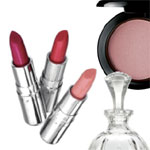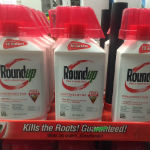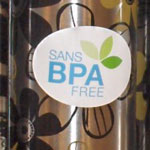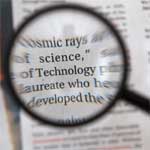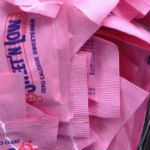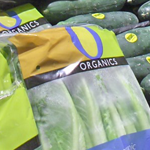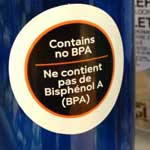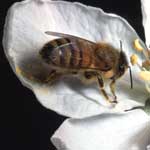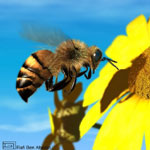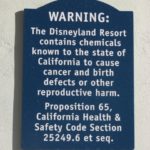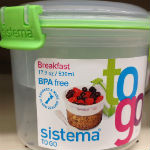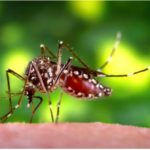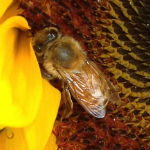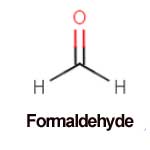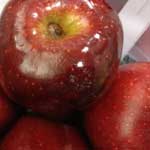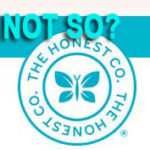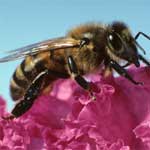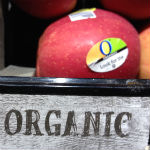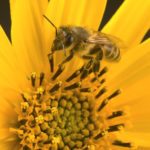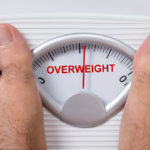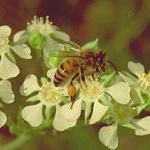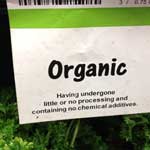"No, There Aren’t Toxic Amounts of Lead in Lipstick," By The Center for Accountability in Science Team. According to the Environmental Working Group, those scoundrels at the FDA are allowing toxic amounts of lead to poison lipstick lovers nationwide! Not so fast. After all, “according to EWG…” is not the same things as “it’s true that…” Last year, the FDA issued guidelines detailing how much lead is safe in lipsticks and other cosmetics. The agency found that products containing less than 10 … [Read more...]
Over-regulation is Counter-Productive
"Over-Regulating Things Like Asbestos is Counter Productive," By Henry I. Miller. Several years ago I participated in a colloquium whose title was something like “Advancing Technology: Thinking Outside the Box.” The presentations ranged from the ever-more imaginative uses of robots (fascinating) to irrigating the Sahara Desert for growing crops that by mid-century could sustain the planet’s burgeoning population (unconvincing). My lecture was the most mundane: I proposed that smarter and more … [Read more...]
EWG’s Skin-Deep Pseduoscience
"EWG Cries Racial Injustice Over Product Safety," by The Center for Accountability. Last week, the Environmental Working Group (EWG) once again stoked the flames of fear with pseudoscience. The group’s latest update to its Skin Deep Cosmetics Database identified 1 in 12 products marketed to African American women as being “highly hazardous,” with fewer than one fourth receiving a “low hazard” rating. Considering the average woman owns 40 different makeup products – a value that doesn’t even … [Read more...]
Wolves, Puppies and Proposition 65
"Wolf in Puppy’s Clothing," By Center for Accountability in Science. Three economists out of Harvard and Vanderbilt recently published a paper on risk management which reflects much of what we believe about warning labels. Current warning systems, such as California’s Proposition 65, fail to differentiate between large and small risks – or, as the authors put it, wolves and puppies. Puppies are common, and although their nip may hurt, a pup doesn’t pose much of a threat. Wolves, on the other … [Read more...]
Pesticide Safety
"How Can Pesticides Be Safe?," By Steve Savage. Many people may find it difficult to imagine how a pesticide could ever be safe. To understand how that is possible, it is helpful to make the comparison with something more familiar: electricity. It is hard to envision modern life without electricity. As much as we enjoy and need this source of energy, it involves some hazards. Electricity can, and sometimes does, cause injury or death. Yet overall, we think of using electricity as a reasonably … [Read more...]
Acrylamide Fear-Mongering
"Stupid Spelt Backwards: Acrylamide," By David Zaruk, The Riskmonger. In the early 2000s, when risk issues were popping up like poison mushrooms, the Swedish regulators decided to raise alarm bells about the health risks from acrylamide (with human exposures brought about by cooking starchy foods). While other perceived risks attracted patient calls for further research (EMF, GMOs, EDCs, MMR …), the risk from acrylamide exposure drew howls of laughter and cemented Sweden’s reputation as … [Read more...]
Worst Science Websites
"The Worst Websites for Science in 2016,"By Ross Pomeroy. Two weeks ago, we revealed our picks for the top science websites of 2016. Whether you seek quality coverage of the latest discoveries, have questions about the validity of the latest fads or diets, or are simply looking for a place to sate your burning curiosity, you can count on those outlets to deliver solid, evidence-based content. We cannot say the same for the organizations we'll be mentioning today. The Internet is full of … [Read more...]
BPA Exposure During Pregnancy
"Should Pregnant Women Be Concerned About BPA?" By Steve Hentges. A recent study from French government researchers reported new results on the exposure of pregnant women to more than 100 substances that might be a concern for the health of a developing fetus. The study examined exposure to various metals (e.g., lead, mercury, arsenic) and many common organic compounds that we might encounter in our daily lives. Included in the study was bisphenol A (BPA), which is used primarily as a building … [Read more...]
Glyphosate Politics
"While Unlikely To Be Carcinogenic, The Herbicide Glyphosate Is A Symptom Of A Deep Social Pathology," By Geoffrey Kabat. On both sides of the Atlantic a battle is raging between starkly opposed views of what science tells us about risks to our health emanating from our surroundings, including our food, water, and the wider environment. This battle often pits advocates, nongovernmental organizations (NGOs), politicians, and partisan scientists, who have little ability or inclination to evaluate … [Read more...]
The Color White Classified as “Possible Carcinogen”
"New Research Brief: 5 Things to Know About Titanium Dioxide," By Center for Accountability in Science. After hearing that the French Agency for Food, Environmental and Occupational Health and Safety (Anses) recently proposed classifying titanium dioxide as a Category 1b carcinogen, we at the Center for Accountability in Science have been busy compiling evidence, and the verdict is in. Titanium dioxide is most widely used white pigment in paints, coatings, plastics, paper, inks, fibers, … [Read more...]
Phony Claims about “Endocrine Disrupter” Costs
"Are Chemicals Really Costing Us Billions?" By Joseph Perrone, Sc.D. A report recently published in The Lancet Diabetes & Endocrinology garnered a lot of attention by claiming that endocrine-disrupting chemicals cost the U.S. $340 billion in healthcare and lost productivity. Certain chemicals are theorized to cause health problems by interfering with the endocrine system, which regulates a number of bodily functions through hormone action. Despite the media attention which may imply … [Read more...]
BPA Safety Standard Confirmed, Again
"The European Food Safety Authority has Looked Again… and Confirms: No Need to Change the Safety Threshold for BPA," By BPACoalition.org. “Saying something, is one thing; proving it is another” The European Food Safety Authority (EFSA) recently conducted a review of two studies on BPA, and confirmed that there is no need to change the safety threshold for BPA. The former conclusion remains valid: BPA doesn’t pose any risks for health, at levels we’re incidentally exposed to in our daily lives. … [Read more...]
Misleading BPA-Free Labels
"BPA-Free, With Regrets," By Steve Hentges. Not that many years ago, many reusable food and beverage containers on the market worldwide were made from polycarbonate plastic. Polycarbonate, which is made from bisphenol A (BPA), is an almost ideal material for these products since its clarity is comparable to glass, making it easy to see what’s inside, and it’s virtually shatter-proof – an important attribute for consumer products that could be dropped. For years though, BPA has attracted … [Read more...]
‘Advocacy Research’ Discredits Science
"'Advocacy Research' Discredits Science And Aids Unprincipled Activism," By Henry I. Miller and Robert Wager. The scientific research enterprise today is in something of a quandary. Various empirical studies show that 80-90% of the claims coming from scientific articles in peer-reviewed journals fail to replicate. (To simplify that statistic, that’s equivalent to only a 10-20% success rate for recipes from a cookbook.) For the most part this is due to flaws in the design of experiments, … [Read more...]
The War Against Sunscreen
"HuffPost’s Chemophobia," By The Center for Accountability in Science Team. It seems Huffington Post needs a fact checker. The outlet recently published an article painting the decision between beauty and safety as one where consumers always loses. The article perpetuates the myth that all chemicals are bad by waging war against sunscreen. The author questions whether her readers know both chemical and physical types of sunscreens exist – as if one should be avoided in favor of the other. She … [Read more...]
Erin Brockovich’s Toxic Fearmongering
“'Toxic chromium' Fear-Mongering, By Paul Driessen. Erin Brockovich became rich and famous by promoting the notion that people in Hinkley, CA got cancer because of hexavalent chromium (Chromium-6) in drinking water. Pacific Gas & Electric (PG&E) settled a 1993 lawsuit for $333 million, rather than risk trial by a jury frightened by a steady drumbeat of horror stories from lawyers, activists, celebrities, “journalists” and hired “experts.” The lawyers got $134 million in fees, and Ms. … [Read more...]
Safety of the Artificial Sweetener, Aspartame
"Should You Stay Away from Aspartame?" By The Center for Accountability in Science Team. Despite decades of research and hundreds of studies demonstrating the safety of the artificial sweetener, aspartame, rumors persist that it’s dangerous. Some flow from the back-country pages of the web, but there’s at least one government agency (in the world) stoking fears: California’s Office of Environmental Health Hazard Assessment (OEHHA). OEHHA might add aspartame to its Proposition 65 list of … [Read more...]
Majority of Pesticides in California are “Approved Organic”
"More than Half of Pesticides used by California Farmers are Active Ingredients Approved for Organic," By Steve Savage. Did you know that organic farmers use pesticides? They do. Would it surprise you to know that many of the same pesticides are used by both conventional and organic farmers? In fact just over half of all the pesticides used in California by all categories of farmers are active ingredients that are approved for organic. Would it surprise you to know that very little of modern … [Read more...]
BPA Is Everywhere or Not
"BPA Is Everywhere, Except Where It’s Not," By Steve Hentges. With the high level of attention to bisphenol A (BPA) over the years, it’s easy to get the impression that BPA is everywhere and we’re constantly being exposed to high and harmful levels in our daily lives. You might even have seen BPA referred to as an “everywhere chemical.” Adding to the confusion, the media is notorious for attaching pictures of products that contain absolutely no BPA to articles about BPA. Perhaps the most common … [Read more...]
No Need to Worry about the Bees
"The Buzz: Six Reasons Not To Worry About The Bees," by Henry I. Miller. Bees are in the news, but for all the wrong reasons—mainly, dire tales of disappearing bees threatening a third of our food supply. Time Magazine, opting for sensationalism over accuracy, said we were headed toward “A world without bees,” with an online video explaining, “Why bees are going extinct.” They called it the “beepocalypse” and blamed it all on modern agricultural technologies, urging immediate and aggressive … [Read more...]
Beekeeping Fad
"Beekeeping Fad And The Stress Of Traveling Is Harmful To Bees," By Hank Campbell. Are bees in peril or not? It's difficult to know, because the moment science declares one thing not an issue (example: neonicotinoid targeted pesticides), environmental groups move the goalposts and declare something else is the problem. When honey bees were shown to be unaffected, groups proposed that wild bees were the big concern, and if amateur record-keeping and a Bayesian estimate agrees, they declare the … [Read more...]
Roundup Safety
Roundup Shown to Be Safe (Again), By Center for Accountability in Science. It’s hard to ignore the growing list of scientific authorities from around the world that keep coming to the same conclusion: glyphosate, the ingredient in herbicides such as Roundup, is safe. Recently, that list just got a little longer. That’s because New Zealand’s Environmental Protection Authority released its Review of the Evidence Relating to Glyphosate and Carcinogenicity. The new review considered studies … [Read more...]
“TENDR” Initiative Promotes Chemophobia
"Hyperbole: the Road to Reform," By The Center for Accountability in Science Team. No parent wants to expose his or her child to potential neurotoxins. That’s why a group of scientists, health officials, and environmental activists launched Project TENDR: Targeting Environmental Neuro-Developmental Risks and issued a call to action to “reduce widespread exposures to chemicals that interfere with fetal and children’s brain development.” Unfortunately, Project TENDR has taken this laudable goal a … [Read more...]
Safer than Soy: BPA’s Low Risk Belies Common Beliefs
"Mind The (Risk Perception) Gap On BPA," By Steve Hentges. It is commonly perceived that natural chemicals are safe while manmade substances may be harmful. These perceptions, however, if not supported by scientific evidence, can result in risk perception gaps that can cause us to worry more than warranted by the evidence. A current example of a risk perception gap is the common belief that naturally occurring chemicals known as isoflavones, which are present at significant levels in some … [Read more...]
How We Perceive Risk
"It's Important To Know How Your Emotions Influence Risk Perception," By Henry I. Miller. Science applied to risks–of products, processes or activities–can be baffling to non-experts. Because people want certainty in their lives, the provisional nature of the scientific method–what we “know” only applies until disproven by new data–can be worrying. The public want simple black-or-white answers, rather than nuanced, qualified advice about relative risk, and they may become frustrated when they … [Read more...]
Misleading Prop 65 Labeling Regulations
"Overregulation Doesn’t Even Spare HIV Patients," By Gregory T. Angelo. This month, the list of substances subject to California’s Proposition 65 was expanded to include Bisphenol-A (BPA), a trace ingredient in many plastics that the scientific community has deemed safe in small amounts.As with other products that include substances deemed cancer-causing under Prop. 65, products that include BPA will now have to carry a warning label stating that they are “known to the state of California to … [Read more...]
TSCA Reform’s Unintended Consequences to Come
"Policy Expert: TSCA Reform Will do Little to Protect Public Health," By Meagan Parrish. Much has been said about TSCA reform, and most of it has been positive. In fact, the process of creating and passing the Frank R. Lautenberg Chemical Safety for the 21st Century Act, which was recently signed into law by President Obama, brought together chemical industry representatives and environmentalists alike. But not everyone is convinced chemical law reform will protect public health. According to … [Read more...]
Too Much Media Alarmism on BPA
"Too Much BPA?, ByThe Center for Accountability in Science Team. A study published in Environmental Research last week fanned the flames of anti-chemical activists when it drew a link between canned food consumption and the presence of increased levels of Bisphenol-A (BPA) in the urine. The study itself isn’t what we take issue with. In fact, it brought together some of the brightest minds at Stanford, Johns Hopkins, and Columbia Universities. Their research was thorough, encompassing over … [Read more...]
TSCA Unlikely Stop California Regs
"The Toxic Substances Control Act Amendments May Do Little to Relieve California Headaches for Businesses," By Morrison & Foerster LLP. Business groups largely supported the Toxic Substances Control Act (TSCA) Amendments―recently signed into law by President Obama—in order to address concerns about the emergence of varying state-by-state requirements that regulate the chemicals used in consumer products (see prior client alert). For businesses that wish to avail themselves of California’s … [Read more...]
Greens Would Starve Africa
"How to Starve Africa: Ask the European Green Party," By David Zaruk, the RiskMonger. There is a commonly shared neo-colonialist expression: The Europeans have the watches; the Africans have the time. Today, the European Green Party, with the support of countless environmentalist NGOs, proposed an initiative in the European Parliament to make Africa wait for at least another generation to be able to lift itself out of poverty. The report tabled by Green MEP, Maria Heubuch, is as vile as it is … [Read more...]
BPA’s Alleged Impact on Teeth
"Study on BPA and Hypermineralisation Makes us Almost Drop our Teeth," By BPA Coalition. Medical Research (INSERM) presented a study at the 18th European Congress of Endocrinology claiming that exposure to Bisphenol A (BPA) could weaken teeth development in children. More specifically they link BPA exposure to Molar Incisor Hypermineralisation (MIH); it affects 18% of young children between 6 and 9, as their permanent first molars and incisors are more sensitive and prone to cavities. While the … [Read more...]
EWG Deception on Herbicide Risk
"EWG’s Latest Glyphosate Flop," By The Center for Accountability in Science. The Environmental Working Group (EWG) claims to fight for the public interest, yet rarely does so using solid science. A day after we laid out the facts on glyphosate, EWG was out in the media trying to keep people afraid of it. Claiming “a growing body of research” is linking the herbicide glyphosate (known by the brand name Round Up) to non-Hodgkin’s lymphoma, EWG failed to highlight that it really only found one … [Read more...]
Scientist Rebuke Pseudoscience on “Endocrine Disrupters”
"Well-known Scientists Ready to Stem the Onslaught of Pseudoscience in the EU," By PRNewswire. A meeting was held between Dr. Vytenis Andriukaitis, Commissioner of Health & Food Safety and well established and respected scientists (Prof. Sir Colin Berry, Prof. Alan Boobis, Prof. Wolfgang Dekant, Prof. Daniel Dietrich, Prof. Helmut Greim, Prof. Pat Heslop-Harrison and Prof. Richard Sharpe) in the fields of human risk assessment and endocrine active compounds ("endocrine disrupting chemicals" … [Read more...]
Plastics Alarmism
"Calling TIME Out on Plastic Alarmism," By The Center for Accountability in Science Team. There’s no shortage of news reports and websites with scary messages about chemicals, but two articles this week caught our attention. First, TIME magazine engaged in a bit of click-baiting this week with a health article warning about common plastics: “That Plastic Container You Microwave In Could Be Super-Toxic.” Next, an article at the Philadelphia Inquirer’s website, although written by two Ph.D.’s, … [Read more...]
A Smart Approach to Fight Zika
"We Don’t Need Billion$ To Prevent Zika," by Paul Driessen and Robert Novack. The Zika virus is increasingly linked to serious neurological complications for pregnant women and microcephaly in newborns: smaller than normal heads and brains. It also affects areas of fetal brains that control basic muscular, motor, speech and other functions, leading to severe debilities that require expensive care throughout a person’s life. The disease is becoming a crisis in Brazil, site of this year’s Summer … [Read more...]
On Bacon and Cancer
"Does Eating Bacon Really Cause Cancer?" By The Center for Accountability in Science. Bacon lovers in California can breathe a sigh of relief—for now, at least. The state Office of Environmental Health Hazard Assessment, which manages Proposition 65 warning labels, has announced it will not require warnings on bacon or other processed meats following news last fall that the World Health Organization’s International Agency for Research on Cancer had classified these meats as carcinogenic. When … [Read more...]
Scaremongering and Nonsense on Glyphosate
"Breaking Down Bullshit: How Clever Activists Make You Afraid!," By The Risk-Monger. In my last blog I stated how the organic industry lobby openly lies, spreads fear and attacks its competition – all activities that any organisation or company with an ethical code of conduct would forbid. I’d like to demonstrate how one organic lobbying organisation, USRTK, desperately needs such a code (… and a lot of integrity). As I have had quite a few personal attacks this week from people who take … [Read more...]
Fast Food and Phthalates
"Do People Who Eat Fast Food Have Higher Levels of Phthalates?" By Center for Accountability in Science. You may have seen the headlines, “If You’re Eating Fast Food, You’re Probably Also Eating Phthalates.” A new study published today in Environmental Health Perspectives finds that teens and adults who reported eating more “fast food” had slightly higher levels of two types of phthalates in a urine test. But before you start to worry about the safety of your burrito or burger, let’s break down … [Read more...]
A Word from a Toxicologist
"A Word from a Toxicologist who Defected from the Federal Junk Science Army," By John Dale Dunn. Last week, I discovered Frank Schnell when he wrote a comment on formaldehyde and said it was not a cancer-causing agent and that the EPA had lied about it. His comment was on an American Council on Science and Health posting by Josh Bloom, Ph.D. (organic chemistry), with a 20-year history of pharmaceutical research. Bloom busied himself in the post eviscerating a scare-monger on formaldehyde from … [Read more...]
Still No Beepocalypse
"Near 20-Year High: Bee-pocalypse Postponed Again," By News Staff at Science 2.0. Despite the hype, there’s still no bee-pocalypse. Two weeks ago, the U.S. Department Agriculture released its latest count of commercial honeybee hives, and although the figure dipped 2.9 percent from the 20-year record-high set in 2014, the overall count of 2.7 million hives in 2015 remains strong. You wouldn’t know it from the news coverage. One Michigan television station recently led with the headline: … [Read more...]
BPA Science
"If It’s Science vs. Motherhood, Can Science Ever Win?" By Ben Miyares. In a bit of unfinished business, California’s Office of Environmental Health Hazard Assessment (OEHHA) added bisphenol A (BPA) to its Proposition 65 list of chemicals “known to the state to cause reproductive toxicity” last year. It now proposes to amend the rule. I say “unfinished business” because listing of the chemical requires businesses that expose individuals to more than a California-determined level of the chemical … [Read more...]
California Holds Back on Misleading BPA Warning Labels
"California Pulls Back on BPA Warnings – Quality of Information Trumps over Quantity," by BPA Coalition. Recently, there has been a lot of coverage on the other side of the Atlantic on the decision by the Californian Office of Environmental Health Hazard Assessment (OEHHA) to delay the implementation of “point-of-sale” warning label for products made out of BPA-based materials. The warning would have to be displayed where a customer pays for products in a shop. This decision exemplifies the … [Read more...]
BPA Use in Canned Food is Safe
"Before You Give Up Canned Food, Read This," by Center for Accountability in Science. It’s been a big week for BPA news. First, Campell’s announced it was phasing out the use of BPA in its canned foods. Then several environmental activist groups released a report finding that over 60 percent of canned foods still use BPA. But before you start throwing out your canned goods over health fears, let’s break down the research. There’s a reason BPA is used in canned foods. Read more. … [Read more...]
Untrustworthy Government Science
"Government Scientists are Squandering the Public’s Trust," Center for Accountability in Science. Who do you trust to tell you whether the products you buy are safe? Bloggers like the Food Babe who crow about “yoga mat” chemicals in bread? Or federal environmental and health regulators who review scientific research and determine which products are safe for consumers? According to a recent ORC poll commissioned by the Center for Accountability in Science, respondents overwhelmingly placed the … [Read more...]
Don’t Worry About Pesticide Residues
"10,000 New Reasons Not To Worry About Pesticide Residues," by Steve Savage. Each year, the farmers around the world who produce our food (fruits, vegetables, grains) get the equivalent of a “grade” on a giant “group project.” For 2014 they got another A+ as they have for many years. The “test” entails thousands of food samples, which the USDA collects from normal US food channels and then scrutinizes for pesticide residues using extremely sensitive laboratory testing methods. Read more. … [Read more...]
Zika And Spurious Associations
"Organic Consumers Association Doubles Down On Pesticides And Zika Claims," by Hank Campbell. Organic Consumers Association, which funds Denier For Hire cabals like the anti-science group U.S. Right To Know, has baffled the science community once again by just making stuff up. When groups made claims that a larvicide named pyriproxyfen was part of a Monsanto conspiracy to promote Zika to give Monsanto a problem to solve(1), they were dismissed by even Washington Post reporters, so OCA has … [Read more...]
Still Not So Honest Company
"Once Again, Tests Show Jessica Alba’s Honest Company isn’t so Honest," By Center for Accountability in Science. Jessica Alba has developed a personal care and cleaning product empire based on the premise that her products are “safer” that other brands on the market. But once again, testing reveals that one of her popular products contains ingredients she likes to claim could be harmful to consumers. This week, The Wall Street Journal reports that two independent lab tests of the Honest … [Read more...]
Neonics Not Harming Bees
"The Idea that Neonics Threaten Bees a Misguided Notion," By Peter Borst. The honey bee, whose problems we've heard so much about in recent years, forms a key partnership with farmers and agriculture. Yet, in a misguided effort to "save the bees," New York's Legislature is now considering measures that will drive a wedge between beekeepers and farmers, potentially damaging to both. More than four decades of professional experience in beekeeping and bee research has convinced me that the … [Read more...]
What Do Organic Labels Really Mean?
"When Food Labels Mislead, By Henry I. Miller and John J. Cohrssen. Organic farming has boomed in recent years, with total sales of organic products — food, bed linens, pillows and clothes — in the United States increasing 83 percent between 2007 and 2012. A primary driver of their success has been the USDA-regulated organic label, which implies to many consumers that these food products are somehow superior. But that is not what the label actually means. Nor is it true. Nor, arguably, is the … [Read more...]
Prop65: Trial Lawyers’ Get Rich Scheme
"California Issues Another Gift to Trial Lawyers and Blow to Small Businesses," by Center for Accountability in Science. We’ve talked extensively on our blog about the problems with California’s chemical warning law known as Proposition 65. It requires warning labels on everything from coffee to sunglasses without offering consumers any context about the actual risk of chemical exposure. Instead of helping Californians make healthier choices, the law has been used as a tool for bounty hunters … [Read more...]
USDA Affirms Yet Again: Pesticide Residues “Pose No Safety Concern”
"Predictability Accompanies USDA Report Release," by SafeFruitsandVeggies.com. This month, USDA released the 2014 Pesticide Data Program results accompanied by the conclusion that residues “pose no safety concern.” This result was no surprise since year after year this program verifies the safety of organic and conventional fruits and veggies. But, this is also predictable: Media coverage of this “good news” story for consumers was almost non-existent with only produce trade publications and … [Read more...]
Toxic Gifts from Santa?
"Protect Yourself from a Lawsuit with our Proposition 65 Christmas Gift Warning," By Center for Accountability in Science. Santa Claus is coming to town with a sleigh full of gifts. Unfortunately for Santa (and gift givers everywhere), a California law known as Proposition 65 requires any item containing one of the over 800 substances “known to the state of California to cause cancer” or reproductive issues to bear a warning label. Santa better watch out: If he happens to slip a new golf club … [Read more...]
A Plea: Stop Food Fearmongering
"Fear Has No Place in the Produce Department," By Safer Fruits and Veggies. Earlier this month, the Alliance for Food and Farming (AFF) had the opportunity to speak at the Consumer Media Luncheon which took place as part of the New York Produce Show organized each year by the publishers of Produce Business. Our topic dealt with the impact of fear-based marketing commonly used by activist groups to promote organically-grown foods over conventional. To be sure, we are in midst of a public health … [Read more...]
Chemicals in Consumer Products
"Are we contaminating our bodies with everyday products?," Center for Accountability in Science. Over the holiday weekend, a New York Times column by Nicholas Kristof argued chemicals used in everyday products are linked to a host of health problems, including cancer, obesity, diabetes, and infertility. And that’s not all—Kristof takes his warning even further, arguing that by not heeding the warnings of organizations such as the Endocrine Society and the International Federation of Gynecology … [Read more...]
Toxicity of Organic Pesticides
"The Risk-Monger’s Dirty Dozen – 12 Highly Toxic Pesticides Approved for Use in Organic Farming," by The Risk-Monger. It is commonly believed that organic farmers do not use pesticides and that organic food is therefore safer to consume than conventionally farmed fruit and vegetables. In a UK poll, 95% of the consumers bought organic food because they wanted to avoid consuming pesticides. This belief could not be further from the truth. The US organic industry has approved over 3000 toxic … [Read more...]
Anti-Neonic “Science”
"Scientist for Hire: UK’s David Goulson produces Pre-determined Pesticide Research for Activist Funders?" By Jon Entine. Freedom of Information requests initiated first by USRTK have uncovered a plethora of documentation showing how anti-GMO groups coordinate their messaging, often working with pro-organic scientists who have shown a willingness to deliver studies supporting the industry that funds them while dissing biotechnology research. ... University of Sussex biology professor David … [Read more...]
Activist “Science” Behind Honeybee-Pesticide Debate
"Dave Goulson: Portrait of an Activist Scientist," By The Risk-Monger. Dave Goulson is an activist scientist campaigning against conventional farming and the use of products that help farmers protect their crops. An excellent communicator, he is interviewed regularly on environmentalist programmes posing as a concerned scientist fighting the lobbying machinery of big business. Presently a biologist at University of Sussex, I have just recently learnt that Goulson will be receiving research … [Read more...]
Cancer Warning Labels on Red Meat?
"Will Meat Come with a Warning Label in California?," By Joseph Perrone. The World Health Organization has declared that bacon, sausage and other processed meats cause cancer and that red meat “probably” causes cancer. Now, for Californians and farmers hoping to sell meat in California, the big question is: Will California require meat to come with a warning label? Proposition 65 requires warning labels on products containing ingredients “known to the state of California to cause cancer or … [Read more...]
Nail Polish and Health
"Is Painting Your Nails Harming Your Health?," By Center for Accountability in Science. Earlier this week, the Environmental Working Group (an environmental activist group known for dubious science) released a new study with Duke University researchers that examined women’s levels of triphenyl phosphate (TPHP), a chemical sometimes used in nail polish. The researchers told the media women who painted their nails had “substantially higher” levels of TPHP than the general population and “These … [Read more...]
Chemicals and Obesity
"Are Chemicals Making you Fat?" By Dr. Joseph Perrone. If the piles of Halloween candy for sale at supermarkets are any indication, we’ve already started our descent into the holiday eating season. It’s that magical time of year when the temptation of delicious treats combined with darker days and cooler weather makes it hard to avoid putting on the pounds. But instead of holding responsible overeating and lack of exercise, it’s tempting to search for blame elsewhere. A new scientific statement … [Read more...]
BPA no Risk in School Meals
School Meals, not the Problem! By BPA Coalition. Recently a study published by researchers at Stanford in the Journal of Exposure Science and Environment Epidemiology has alleged that school meals may expose children to “unsafe levels of BPA”. The author Jennifer Hartle said she was “shocked to see that virtually everything in school meals came from a can or plastic packaging”. But does her shock at the use of plastic mean it is unsafe? Before getting lost in the jungle of individual studies, … [Read more...]
No Worries about Arsenic in Wine
"Too Much Wine Might Cause a Hangover, But Not Arsenic Poisoning," By Center for Accountability in Science. Earlier this year, a handful of wine drinkers filed a class action lawsuit against several wineries for knowingly producing wine contaminated with arsenic. They argued that because levels of arsenic in some wine exceeded the level of arsenic set by the U.S. Environmental Protection Agency for drinking water (something Americans of all ages consume in much greater quantities than wine), … [Read more...]
BPA and Birth Weight
"Prenatal BPA Exposures (Don’t) Affect Birth Weight," By Steve Hentges. Recent media stories have reported on two new scientific studies involving BPA’s effects on birth weight. One study reported a statistical association between prenatal exposure to BPA and increased birth weight, while the other reported an association with decreased birth weight. However, both of the new studies use cross-sectional study designs that are inherently incapable of providing much meaningful information on … [Read more...]
BPA Ban in France Not Justified
"BPA ban in France : a decision that raises questions," by BPA Coalition. The Constitutional Council, France’s highest constitutional authority, concluded that the request from the plastics manufacturers industry to review the application of the French law that banned the use of BPA in food contact applications, effective since 1 January 2015, was justified. The ban on the production and export of such products is unconstitutional and it impedes the freedom to conduct a business. Read more at … [Read more...]
Guerrilla War Against Chemicals Hits Starbucks
"The Guerrilla War Against Chemicals Extends To Starbucks," Pepsi, By Dr. Robert Lichter. The latest skirmish in the war of anti-chemical crusaders against the food industry broke out in an unlikely place – the usually tranquil waters of Starbucks’ pumpkin spice latte. Vani Hari, author of the widely read Food Babe blog, recently kicked up a fuss by charging that the popular drink contains a cancer-causing substance called 4-mei, which is a byproduct of its caramel coloring. As the name of her … [Read more...]
Prop 65: Lawyers’ Pilfering of Small Businesses
"Prop. 65 a Burden on Small Businesses, Bonanza for Lawyers," By Jospeh Perrone. California’s chemical labeling law, Proposition 65, has long been criticized for costing businesses millions in frivolous lawsuits without doing much to improve public health. Gov. Jerry Brown signed modest reforms into the law in 2013. But instead of helping curb these out-of-control lawsuits, newly released figures show the amount of money paid by businesses last year to settle Prop. 65 lawsuits actually … [Read more...]
Not So Honest Company?
"Jessica Alba’s Company Sued for Being Not-So-‘Honest.’" by Center for Accountability in Science. A few weeks ago, we highlighted the problems with sunscreen sold by Jessica Alba’s Honest Company—despite being “all natural,” many consumers reported it didn’t actually stop them from getting sunburned. Now, the Honest Company is being sued for its ineffective products and misleading marketing. The company is currently fighting two lawsuits. Read more. … [Read more...]
Reducing Food Waste with BPA
"Reducing Food Waste in Europe – BPA’s Contribution," by BPA Coalition. According to a new study carried out by scientists from the European Commission’s Joint Research Centre, Europeans waste an average of 123 kg of food per capita annually, or 16% of all food reaching consumers. In total, this would mean 47 million tons of food waste annually. Though there are many ways to better preserve and utilise food, packaging and canning food is one principle methods. Effective canning requires the use … [Read more...]
Myth about Honeybees’ Impact on Food Supply
"Pollinator myth: Are bees responsible for one third of global food, heightening crisis? More like 7%" by Genetic Literacy Project. Will the planet starve if bees disappear? Aren’t bees responsible for a significant chunk of the world’s food supply and nutrition, from one third to as much as 90 percent, depending on what advocacy group is making the claim? You hear such assertions invoked by advocacy groups, reported as truth by journalists and cited by politicians as accepted wisdom whenever … [Read more...]
Organic Food Hoax
"The Colossal Hoax Of Organic Agriculture," By Henry I. Miller and Drew L. Kershen. Consumers of organic foods are getting both more and less than they bargained for. On both counts, it’s not good. Many people who pay the huge premium—often more than a hundred percent–for organic foods do so because they’re afraid of pesticides. If that’s their rationale, they misunderstand the nuances of organic agriculture. Although it’s true that synthetic chemical pesticides are generally prohibited, there … [Read more...]
“Natural” Food is Made of Chemicals
"'All Natural' Doesn't Make Food Safer, Healthier," By Dr. Joseph Perrone. Would you feed your kids a snack that includes ethyl ethanoate, 3-methylbutyraldehyde, butylated hydroxytoluene and linoleic acid? While many Americans would probably balk at loading up lunchboxes with these scary sounding chemicals, they're actually common compounds found in blueberries. Listing off hard-to-pronounce chemicals as a reason to avoid certain foods has been the basis of campaigns by activists such as the … [Read more...]
Paltrow Uses Junk Science to Sell Her Cosmetics
"Gwyneth Paltrow Whips Up Consumer Fears to Promote New Organic Cosmetics Line," by Center for Accountability in Science. Gwyneth Paltrow isn’t exactly known for giving the best health advice. She advocates “detoxing” by severe diet restrictions, saunas, and colonics to “flush out” toxins—treatments that are at best useless (as Frank Sacks, MD, of the Harvard School of Public Health says, the idea that you need to help your body get rid of toxins has “no basis in human biology”) and at worst … [Read more...]
Unscientific Cancer Classifications
"The UN’s Relentless March Of Unreason," By Henry Miller. Since the 16th century, the guiding principle of the science of toxicology has been that “the dose makes the poison.” In other words, toxicology tells us what quantity (dose) of a substance will cause harm. This applies to the medicines used by Americans hundreds of millions of times a day to help relieve symptoms or treat illnesses’ for example, the right dose of aspirin or an over-the-counter cold remedy can be a therapeutic godsend, … [Read more...]
Beepocalypse Narrative Doesn’t Pass Test
"Attempt to Breath New Life into Beepocalypse Narrative Doesn’t Pass Laugh Test, "by Genetic Literacy Project. It doesn’t take a peer-reviewed study to tell you that if you blot out the sun, plants won’t grow and solar panels are going to stop functioning. Or if a mammoth asteroid unexpectedly hit the earth tomorrow, it would cause enormous destruction. Or if… you get the point. Doomsday scenarios are great as sci-fi pulp or to bolster ideological campaigns, but such musings offer no practical … [Read more...]
Bisphenol F in Mustard — But Don’t Worry
"Bisphenol F in Mustard? No Problem!" by SaferFruitsandVeggies.com. Here’s a fact you most certainly didn’t know: Bisphenol F, another substance in the “bisphenol” group, is naturally formed in mustard, and humans have been ingesting it for a long time with little consequence. BPF, like BPA, is an endocrine active substance. Interestingly, according to a recent study from the Swiss Food Safety Administration (BLV), the average person takes in about three times more BPF from mustard consumption … [Read more...]
Activists Threaten Nutrition for Expecting Moms
"Environmental Activists Threaten Nutrition for Pregnant Women," by Center for Accountability in Science. This week activists with the Environmental Working Group and Mercury Policy Project again slammed draft recommendations from the U.S. Food and Drug Administration urging pregnant women and children eat more fish—a valuable source of protein and many heart- and brain-healthy nutrients. The FDA is far from the only agency that believes the health benefits of fish should surpass concerns over … [Read more...]
BPA Lined Cans Still Safe Despite Green Hype
"Should You Avoid Canned Food?" By the Center for Accountability in Science. The Environmental Working Group (EWG)—the same group that publishes a scaremongering annual report on sunscreen safety—is now trying to discourage the consumption of canned foods. In a new report, EWG argues that since a large amount of the canned items on consumer shelves use bisphenol A (BPA) in can linings, consumers should “limit or avoid canned food.” EWG claims BPA poses a health risk to consumers, but fails to … [Read more...]
The High Cost of Junk Science
"Bad Science Might be Costing Billions," By Center for Accountability in Science. Poor experiment design, accidental contamination, and inadequate data analysis are all major research problems we’ve pointed out on this blog. Now, a new study published in PLOS Biology estimates that problematic research that isn’t easily reproduced may be costing $28 billion per year. Of course, that doesn’t mean all those studies were complete wastes. Some studies included in that figure did find valid results, … [Read more...]
Dismiss Junk Science on Autism Causes
"Discard the Junk Science on Autism," By Dr. Joseph Perrone. What do Sean Penn and Robert F. Kennedy, Jr. have in common? They’re both wealthy celebrities pushing new documentaries that make dangerous, unproven claims about the causes of autism. The rate of autism diagnoses has indeed skyrocketed in the past 20 years from 1 in 10,000 to 1 in 68. However, as the Centers for Disease Control and Prevention (CDC) points out, a large (though not the only) factor in that dramatic jump is increased … [Read more...]
Grading the Pollinator Strategy
"Grading The President's Strategy To Promote Bee Health," By Hank Campbell. In 2006 there was a serious decline in the number of honey bee colonies in parts of Europe and the United States and it brought renewed concern about another Colony Collapse Disorder, which had last occurred in the mid-1990s. Bee colonies rebounded quickly and are higher than ever but the question lingered; what caused these periodic collapses? Answers ranged from pests to viruses and pesticides and studies did nothing … [Read more...]
EWG’s Sunscreen Smoke Screen
"Are there ‘Worrisome’ Ingredients in Sunscreens?" By Center for Accountability in Science Staff. Memorial Day is just around the corner, which for many Americans signals the opening of swimming pools and the beginning of beach vacations. For the Environmental Working Group (EWG), it’s the opportunity to release its scary annual report about the “danger” posed by most sunscreens on the market. This year, EWG’s splashy new finding is that “80 percent of 1,700 products we examined this year offer … [Read more...]
Green Agenda on Bees
"Bee Facts Change – Green Agendas Don’t," by Paul Driessen. U.S. Department of Agriculture annual beekeeper surveys reveal that the number of honey-producing hives in the United States has held steady at about 2.5 million since 1995. Indeed, the numbers increased four of the last five years and are actually higher now than when neonics first came on the market in the mid 1990s. Most beehive problems now involve less experienced hobby beekeepers. A similarly hyped issue, “colony collapse … [Read more...]
Handmade Soap Under Attack
"Big Cosmetic And Sen. Dianne Feinstein Go After Your Handmade Soap," By Hank Campbell. What do you have when someone declares that organic food should be separate from USDA oversight but organic soap should have special oversight if it is not made by a large corporation? A California politician. In this case, Senator Dianne Feinstein (D-Calif.), who is obeying the wishes of every large cosmetics corporation and siccing the Food and Drug Administration on 300,000 primarily woman-owned handmade … [Read more...]
New Bee “Crisis”
"The New Bee Crisis Is Just Like The Old One: Phony," by Henry I. Miller. Never let a good crisis go to waste, Rahm Emanuel famously said. But what do you do if the “crisis” turns out to be a dud? Easy–invent a new one. That’s what we’re seeing currently in Washington and Brussels, where government regulators, deprived of one environmental calamity–by, of all things, data–are scrambling for a new narrative. For years environmentalists have been raising alarms about the “bee-pocalypse”–a … [Read more...]
Lowes and Home Depot Sell Out to Activist Junk Science
"Stupid-Strategy Sweepstakes: Home Depot vs. Lowe’s," By Jeff Stier & Henry I. Miller. Both of the nation’s retail hardware behemoths, Home Depot and Lowe’s, recently sold out to activists in ways that are the corporate equivalent of a dog’s putting his tail between his legs and slinking away from a bully. Home Depot announced that by the end of this year it will stop selling vinyl flooring that contains a class of chemicals called phthalates. It described the move as an effort to … [Read more...]
Demonizing Formaldehyde
"Demonizing Formaldehyde For Fun And Profit," By Michael D. Shaw. Formaldehyde is a simple and ubiquitous molecule, used in countless products and industrial processes. The compound is synthesized by virtually every life form, and does not accumulate in the environment. However, since formaldehyde (along with everything else) is a “chemical,” greedy fear entrepreneurs are more than willing to scare the public. In so doing, they not only extract millions of dollars in dubious donations, they … [Read more...]
Dr. Oz: A Mea Culpa?
"Dr. Oz: A Mea Culpa Or Finally Aware?," Hank Campbell. On today's "Dr. Oz" television show, Dr. Mehmet Oz finally addressed what has worried some and infuriated others about his media career; the show addressed the possibility that a gifted medical professional with too many awards to count had gone off the alternative medicine deep end. It seems he really hasn't been faking it for a paycheck, because he is not that good an actor. He believes what he says, even if it is wrong. And some of it … [Read more...]
BPA No Risk to Babies
"New Study Challenges Assumptions about BPA and Babies," By Center for Accountability in Science. Bisphenol-A (BPA) is everywhere–it’s a key ingredient in plastics, used in the lining of cans, and countless other applications. Even after it was phased out of baby bottles and sippy cups, researchers have still found levels of BPA in infants. And even though recent comprehensive reviews of BPA research by the U.S. Food and Drug Administration and European Food Safety Authority concluded BPA poses … [Read more...]
The Dirt On Earth Day: Chemophobia
"The Dirt On Earth Day: Chemophobia Masquerading As Environmentalism," By Henry I. Miller and Kavin Senapathy. Wednesday will be the 45th anniversary of the first Earth Day. Founded by then-U.S. Senator Gaylord Nelson (D-Wisconsin), it was held in 1970 as a “symbol of environmental responsibility and stewardship.” In the spirit of the time, it was a touchy-feely, consciousness-raising, New Age experience, and most activities were organized at the grassroots level. A driving force of … [Read more...]
Give Oz The Boot
"Dr. Henry Miller To Columbia: Give Oz The Boot," By Josh Bloom. Although I have done my share of writing on Dr. Oz (much of it humorous, and some just in poor taste), the following has nothing to do with me. Dr. Henry Miller, a Robert Wesson Fellow in Scientific Philosophy and Public Policy at the Hoover Institution, who writes regularly about matters concerning junk science and medicine, and their effect on public health policy, has decided to take matters into his own hands. In a letter to … [Read more...]
The Dose Makes the Poison
"Dr. Perrone: The Dose Makes the Poison," by Dr. Joseph Perrone. Too much of anything is rarely good for our health. As we recently learned from an Arkansas man's scary experience, drinking a gallon of iced tea every day could cause kidney failure. Even water can be deadly—drinking too much, too fast can lead to a dangerous condition known as water intoxication. The small risk of health issues from drinking way too much tea or water shouldn't stop us from hydrating. But we're constantly being … [Read more...]
Medical Professionals Speak Out About Dr. OZ
"Dr. Henry Miller Looks Behind the Curtain and Others Finally," By American Council on Science and Health. Yesterday we reported that ACSH friend, Dr. Henry Miller of the Hoover Institute, wrote a very blunt letter to Dr. Lee Goldman, the Dean of the Faculties of Health Sciences and Medicine at Columbia University, calling for the removal of Dr. Mehmet Oz from the faculty at the university. The beginning of Miller’s letter read, “We are surprised and dismayed that Columbia University’s College … [Read more...]
Flawed Data = Flawed Phthalates Rule
"Using Poor Science and Stale Data to Support Flawed Policy," By Nancy Nord. In 2008, after lead-contaminated toys and other products from China wound up on American store shelves and forced product recalls, Congress rushed to pass legislation intended to protect Americans, giving the Consumer Product Safety Commission -- a small and relatively unknown federal agency-- sweeping new regulatory authority. Now, nearly seven years after that scare, it is increasingly clear that the new powers … [Read more...]
Dr. Oz Rejects Science on BPA
"Dr. Oz Exaggerates Scientific Findings…Again," By Center for Accountability in Science. In their recent column, Dr. Mehmet Oz, host of “The Dr. Oz Show,” and Mike Roizen, of the Cleveland Clinic once again spread misinformation about the safety of Bisphenol A (BPA). Dr. Joseph Perrone of the Center for Accountability in Science wrote a letter to the editor in response: "The recent column by Drs. Mehmet Oz and Michael Roizen (“Get the science behind BPA’s risk to your health,” March 31) … [Read more...]
From “Carcinogen” to Cancer Treatment
"Artificial Sweeteners: Cancer Causing or Cancer Curing?" by Center for Accountability in Science. In case you needed further evidence that scientific opinion is constantly changing, new research presented this week finds evidence that saccharin, an artificial sweetener found in brands like Sweet ‘N Low ®, may be a tool in treating cancer. The researchers found that saccharin binds to a protein found in many cancerous cells, carbonic anhydrase, disrupting its activity and potentially stopping … [Read more...]
IARC Classification of Glyphosate
"IARC Glyphosate Cancer Review Fails on Multiple Fronts," By Academics Review. The International Agency for Research on Cancer Monograph evaluation of certain insecticides and herbicides earns an F grade for failure to consider all the available studies, placing weight on weak and discredited studies (several in the advocacy community are already using this report claiming it is a vindication of the discredited Seralini GMO cancer claims), and most importantly failure to consider if glyphosate … [Read more...]
Organic Farming: “Natural” not Always Best
"Why Organic Can't Fulfill Our Food Supply Ideals," By Steve Savage. Almost any farmer or consumer could agree on the following ideals for our agricultural system: "Farming in ways that are best for us, best for the environment, and best for providing an adequate food supply." I believe that these are the goals and ideals of organic customers and organic farmers, and I share them. If organic could deliver on these “triple best” goals, I would be among its strongest supporters, but I don't … [Read more...]
“Frog-pocalyspe”
"Apparently The Frog-pocalypse Is Still A Thing," By Hank Campbell. Lost in all of the hype and hysteria and White House panels on how industry is killing bees is the last indicator species that was being doomed by non-organic pesticides: frogs. It seems like a hundred years ago but it was only last decade that a biologist in a department at Berkeley got a friend of his, a member of the National Academy of Sciences, to hand-walk a paper on frogs past peer review and into PNAS - the Proceedings … [Read more...]
No Worries about Arsenic in Wine
"Dangerous Levels of Arsenic in Wine? Not So Fast," by Center for Accountability in Science. The internet has been buzzing about a new lawsuit claiming that popular wine brands contain “extremely high levels of arsenic.” But a closer examination of the “research” behind this lawsuit and the scary headlines shows that wine lovers don’t really have much to worry about. The plaintiffs are comparing the level of arsenic found in wine with the U.S. Environmental Protection Agency’s limit for … [Read more...]
Bee Colonies Increase
"Bee Colonies In 2014 Increase Another 4 Percent," by Hank Campbell. The National Agricultural Statistics Service of the United States Department of Agriculture has released its honey report for 2014 and found it's boom times for bees. Hives increased again, another 4 percent, up to a whopping 2.74 million colonies, and honey production is up 19 percent. Yield per colony averaged 65.1 pounds, which is up 15 percent. Read more. … [Read more...]
